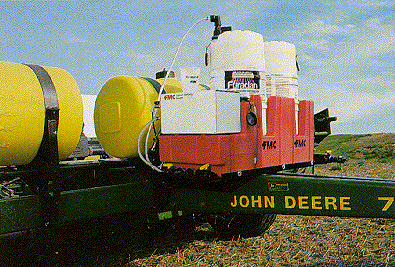 Voices of Knox County:
Voices of Knox County:
"The greater problem is the commercial fertilizers, which kills the bacterial life of your soil. Today, the way we do it is we go out and we soil test: analyze the soil and find out what we need to do to grow the crop we want to grow. We set our goals and we go out and buy the fertilizer to do it. In most cases it works, production-wise. Economically--though nobody ever considers it--in most cases, it's economic suicide."
"In controlling the weeds we use as many biological controls as possible, such as: rotations, cover crops, and narrower row spacing. The other is doing away with as many pre-emerge herbicides as possible and going to the post-emerge herbicides. The advantage to the post-emerge herbicides is that we not only apply them after we have the problem, but we can see the problem we have and regulate it accordingly, rather than having to overapply in anticipation of a problem which may or may not arise."
"You can get instant results from chemicals and there is no doubt they will work. They are short term solutions, but they don't solve any long term problems."
The majority of Knox County farmers use chemicals, in the forms of pesticides, herbicides, or fertilizers. All farmers who buy and apply chemicals are required to have a license. Advances in technology have provided the farmer with more accurate information as far as the amount of chemicals to use and where and when to apply them. For instance, it is important that during application there is little or no wind and rain. This prevents the chemicals from blowing or washing into water sources and other places besides the fields. There is a small minority of organic farmers in the county who do not use chemicals of any kind on their fields.


 E-Mail The Family Farm Project
E-Mail The Family Farm Project